Next week is the annual IAFN conference, and it’s always one of the highlights of my year. It’s the only time I get to see so many of my people in one spot. This year will be more than hectic–I’m teaching a full day of testimony for the pre-conference (with my partner Sasha, because why wouldn’t I take professional advantage of living with a prosecutor?), plus 3 breakout sessions: one on sustainability with Jen Pierce-Weeks, one on writing and evaluating expert reports (also with Jen), and a military-specific testimony breakout (also with my partner).
If you see me in Anaheim, please come up and say hello–come talk to me about your practice, or introduce yourself and tell me a little more about who you are. I love meeting FHO readers, and it makes my day to get to put names with faces. FHO now has 600+ subscribers and thousands of readers who visit the site annually, and it’s a fairly diverse crew (with many physicians, advocates, attorneys and law enforcement professionals in the mix). Any time I get to meet readers is pretty special, so don’t be shy.
Also this: my sessions will be no shaming sessions. People are there to learn, and even when they err, shaming is inappropriate. I will not tolerate people making comments to others that only serve their own need to feel better/smarter/cooler than others in the room at someone else’s expense. I am asking for people to think about the comments they make, to be intentional in how they respond to colleagues and to work to elevate the quality of the dialogue at professional events such as this. I abhor a bully, and shaming another colleague because of her practice or education or knowledge gap is bullying behavior. The number of colleagues who have relayed their experiences with shaming are countless; I have experienced it, too. Mistakes and gaps in knowledge can be corrected, kindly. There’s no reason to treat a colleague like a fool for making a mistake. And the conversation about education is exhausting. I am all for education–as an advanced practice nurse with a clinical doctorate, I certainly value my time in school. I just don’t necessarily believe there is anything problematic with choosing not to pursue an advanced degree–there is a personal and a professional calculus that needs to be done, and sometimes the numbers don’t point to a return to the academic arena. I have yet to find a study that equates the quality of forensic nursing care with attained degrees. Having reviewed more than a hundred medical records in the last couple years alone in preparation for trial, I have seen some awful practice documented by clinicians of all educational levels, physicians, as well as nurses. I find myself much more committed to the larger body of continuing clinical education at this stage in my career, so that clinicians can enhance their capacity and competency. This is where I see a difference in the quality of care. But in order to do that we need to make it comfortable for people to gauge their own deficits– to ask questions and sometimes not know things. It means making room at the table so everyone feels they have a right to be there.
I guess that’s what I am asking people to do this year at the conference. Move over and make space at the table. It’s a big freakin’ table and there is plenty of room.
Travel safely–I’ll see you in Anaheim.
{Related: Standard 10: Collegiality, Forensic Nursing Scope and Standards of Practice, p. 39}

2 replies on “Conference on Forensic Nursing Science and Practice”
Thank you for your comments on building one another up professionally. We learn so much more when we are not afraid to ask questions for fear of being put down. Cant tell you how many times I’ve heard someone ask a question or make a statement about their practice only to see other nurses roll their eyes!!! Really?
Very well said. Thanks for all you do to help newcomers and established in the Forensic Nursing field.